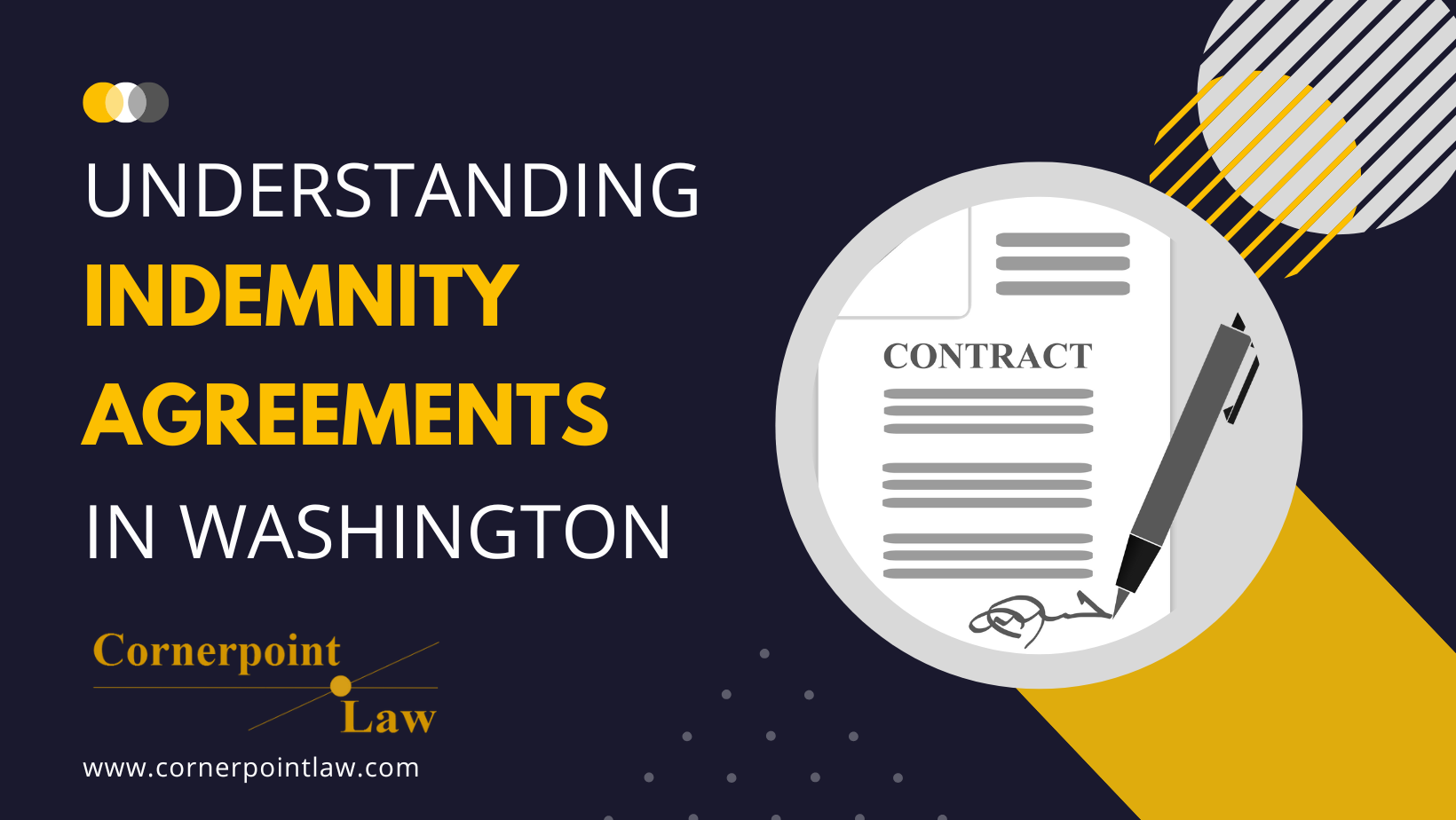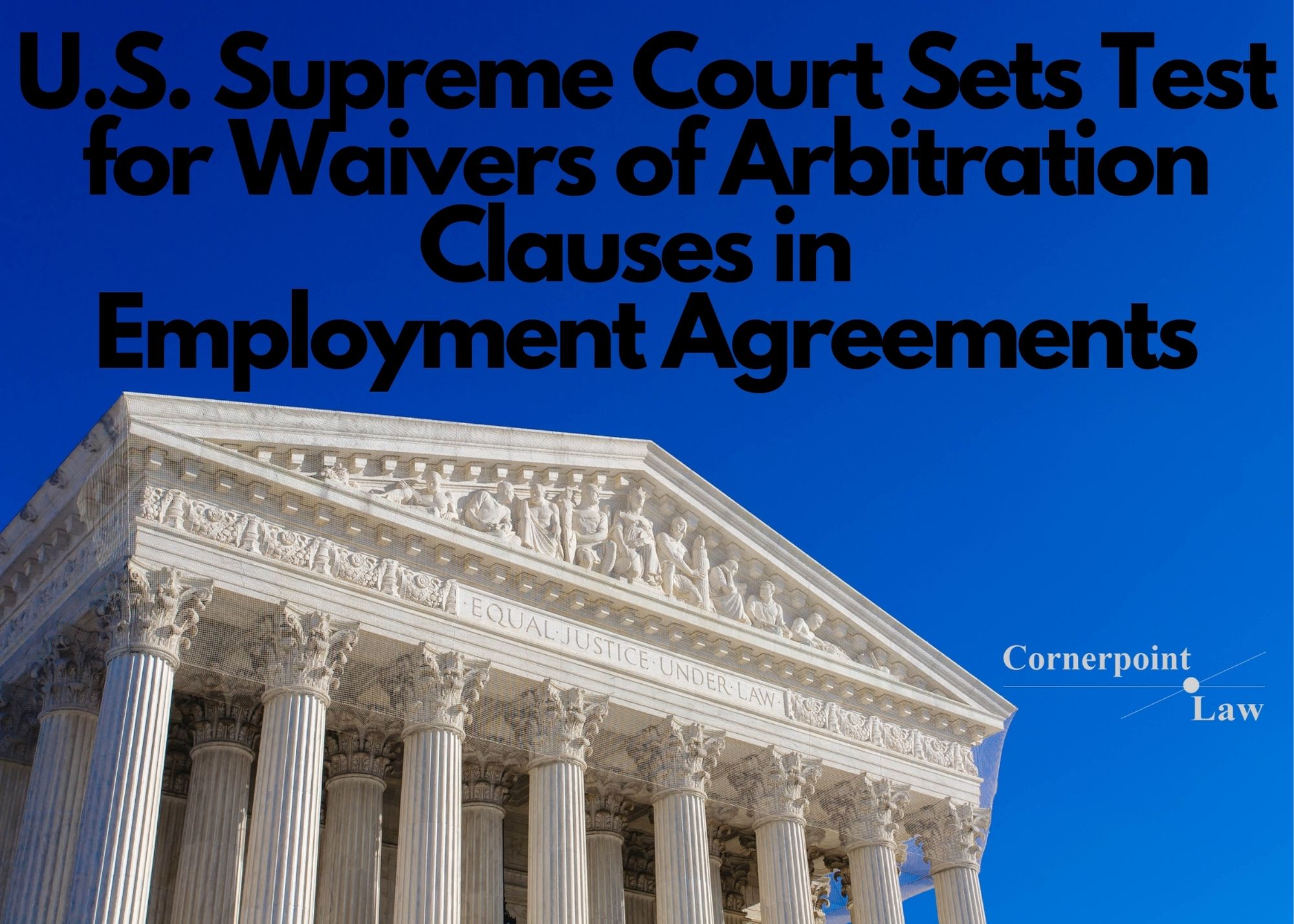Compelling, Staying, Waiving, Confirming, and Disputing Arbitration
July 31, 2019
Unauthorized use and/or duplication of blogposts without express and written permission is strictly prohibited. Excerpts and links may be used, provided that full and clear credit is given, and with appropriate and specific direction to the original content.
The author of this post can be reached by phone at 206-693-2718 or by email.
If My Contract Requires Private Arbitration, Why Am I in Public Court?
By Stacia Hofmann
Arbitration has been a frequent topic on Cornerpoint Law’s blog, and a point of discussion on its YouTube channel as well. Many business and employment contracts contain arbitration provisions that require that a dispute be heard before a private arbitrator (or panel of arbitrators) instead of in a court of law.
Businesses owners might be surprised to learn that even if their contracts have arbitration provisions, they may still spend time in court.1 The purpose of this blog post is to review and explain those situations.
Compelling (or Staying) Arbitration in Court
Sometimes a party files a lawsuit in court, even if there is an arbitration provision in their contract. In this instance, the other party may seek arbitration by alerting the judge, filing a motion, and asking for a transfer to arbitration. This is called “compelling” arbitration. In the reverse situation, the party opposing arbitration may file a motion to “stay” arbitration – or prevent arbitration from moving forward.
 Why does this happen? After a dispute arises, it is not uncommon for one party to want to arbitrate the dispute privately, while another party wants to litigate it in a public court. The reasons are varied. The costs of arbitration, actual or perceived biases or benefits in one venue versus the other, the potential publicity of public court, and preserving issues for a jury or for appeal are all reasons why a party might try to avoid, or, on the other side of the coin, pursue, arbitration.
Why does this happen? After a dispute arises, it is not uncommon for one party to want to arbitrate the dispute privately, while another party wants to litigate it in a public court. The reasons are varied. The costs of arbitration, actual or perceived biases or benefits in one venue versus the other, the potential publicity of public court, and preserving issues for a jury or for appeal are all reasons why a party might try to avoid, or, on the other side of the coin, pursue, arbitration.
Generally speaking, the judge will decide whether the parties agreed to arbitration, and may also analyze whether the arbitration provision is deficient and unenforceable.2
If the judge determines that the case should be in arbitration, the judge will transfer the case to arbitration and avoid further analysis at that time. If the judge determines that the case should not be in arbitration, the dispute proceeds in court, and the party seeking arbitration may even appeal to a higher court right away.
Thus, the parties may find themselves in court, at least for awhile, if they disagree on this issue of arbitration jurisdiction.
Waiving Arbitration in Court
The parties to a contract can jointly and expressly agree to “waive,” or abandon, a previous agreement to arbitrate and go to court with their dispute instead. This is allowed, but if the arbitration agreement is part of a larger contract, it does not mean that the rest of the contract’s terms change or are unenforceable.
Sometimes, the parties waive arbitration based on their conduct in court. If a party continues to litigate with an adversary in court, and doesn’t make it known that they believe the case should be in arbitration or seek a motion to compel arbitration, a judge may find that the party waived their right to arbitration, especially if the conduct has prejudiced the other party. In other words, forum shopping is not allowed. A party does not get to test the waters in court, and then, if they don’t like how things are going, switch to an arbitrator in hope of a different result.

But why would parties waive arbitration – either expressly, or implicitly by their conduct? The type of dispute, the passing of time, a change in the law, court-only offerings, risk reduction, perceived competitive advantage, and collaboration — just to name a few things — may all lead to a change of mind.
Therefore, either by subsequent agreement or by waiver, parties who have agreed to arbitration may end up having their case heard in court instead.
Confirming (Or Disputing) an Arbitration Award in Court
The default rule is that after an arbitrator issues a decision (called an “award”), a party needs to file the award in court if they want it to have the same legal effect as a court judgment. So a private arbitration award does not necessarily mean a confidential arbitration decision, although the proceedings and evidence leading to the award may remain “off the public record.”
 However, sometimes a party who believes that the arbitration award is erroneous asks a judge to change or void it. Judges do not always have the power to modify or overrule an arbitration award. Rather, a judge can only modify or vacate an arbitration award for a handful of reasons, such as the arbitrator did not have jurisdiction over a dispute (back to arbitrability), or exceeded their powers. The arbitrator’s incorrect interpretation of the law and evidence is usually not reason enough to change the award, and a party cannot go to binding3 arbitration first and then ask for a do-over in court.
However, sometimes a party who believes that the arbitration award is erroneous asks a judge to change or void it. Judges do not always have the power to modify or overrule an arbitration award. Rather, a judge can only modify or vacate an arbitration award for a handful of reasons, such as the arbitrator did not have jurisdiction over a dispute (back to arbitrability), or exceeded their powers. The arbitrator’s incorrect interpretation of the law and evidence is usually not reason enough to change the award, and a party cannot go to binding3 arbitration first and then ask for a do-over in court.
So, if a post-arbitration dispute arises, the parties may have to argue it out in court, even if a judge ultimately finds the arbitration award stands as-is.
Key Takeaway
There are multiple factors to consider in deciding whether to agree to arbitration in the first place. But even if the risks of arbitration are acceptable and the benefits are desirable, a party may still end up fighting a battle in court.
This blog is for informational purposes only and is not guaranteed to be correct, complete, or current. The statements on this blog are not intended to be legal advice, should not be relied upon as legal advice, and do not create an attorney-client relationship. If you have a legal question, have filed or are considering filing a lawsuit, have been sued, or have been charged with a crime, you should consult an attorney. Furthermore, statements within original blogpost articles constitute Stacia Hofmann’s opinion, and should not be construed as the opinion of any other person. Judges and other attorneys may disagree with her opinion, and laws change frequently. Neither Stacia Hofmann nor Cornerpoint Law is responsible for the content of any comments posted by visitors. Responsibility for the content of comments belongs to the commenter alone.
- This blogpost is not concerned with mandatory arbitration, RCW Ch. 7.06. Mandatory arbitration hinges on the amount in dispute, not on a pre-dispute agreement to arbitrate. ↩
- Whether a dispute has the “ability” to be arbitrated is called “arbitrability.” The parties can agree that an arbitrator decide arbitrability, but, absent such agreement, the default rule is that a judge in a court of law decides arbitrability. ↩
- If arbitration is non-binding, a party generally does have the opportunity to have a dispute arbitrated and then decided in court. ↩




